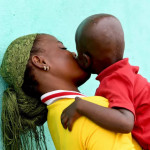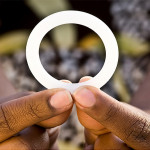As I prepared for my first visit to Africa in 1994, a friend asked if I felt like I was going back to my roots. “No,” I said, “my roots are firmly planted in Louisiana and Mississippi.” And I had been told in no uncertain terms by two Nigerian foreign-exchange students when I was in college that American blacks were not African. “This trip,” I said, “is not a private journey but a professional one.”
As a privileged American—and AIDS activist—it was important for me to learn about the epidemic in Africa. I did not expect this trip to be the start of a journey that was intensely personal. But afterward I found that I, an African American and a person with AIDS, was energized to support my brothers and sisters living in Africa in ways that still surprise me.
As the plane began its final descent to the Nairobi airport, something happened that I still can’t explain. When the rubber tires touched the tarmac, I knew that for the first time in my life I was home. I wept.
But was I “home” as an African American? Or as a person sharing in the struggle against AIDS? I’m not sure. What I do know is that my experience of Africa and its people continues to be intense, personal and energizing.
The irony of an American with AIDS finding a home in Africa is that many African PWAs themselves find it enormously difficult to create safe havens there while facing violence, as evidenced by the recent murder of a South African woman solely because she had HIV. Like many in the United States, I have read about the overall devastation. I’ve witnessed it in the faces of people I’ve grown to love very much. The gravity of the epidemic cannot be overstated—it is on track to surpass every African catastrophe of this century—but sometimes it’s necessary to back away from the huge, numbing numbers and focus instead on individuals and families.
Most Africans with HIV face bleak futures. But I believe the real Africa AIDS story is about them, and what they are doing against apparently insurmountable odds. Some have publicly disclosed that they have HIV to encourage others to follow suit and fight the stigma—and to lead the fight for greater access to therapies. Others have lobbied their governments to do more for people with HIV and to admit the realities of the epidemic.
“AIDS is over” does not apply to Africa, where 90 percent of all people with HIV live. I pray for AIDS to be over. I want it to be over with every fiber of my being. I have no need to visit any more deathbeds or deliver any more eulogies. But I know in my soul that AIDS will never be over until we take real strategic and comprehensive action to defeat this disease all across the globe.
I’m reminded of something my partner, Chris Brownlie, wrote about AIDS shortly before he died nearly a decade ago:
It is caring for your friends in a way you never have before. Intimate ways, horrible ways, ways that take more of your love than you knew you had.
It is the fighting back. It is the building of places to care for the living and for the dying. It is courage; it is honor; it is integrity.
It is bearing the unbearable, enduring the unendurable, and hoping in the face of hopelessness.
As you read our “Inside Africa” issue, we hope you gain insights into what it’s like to live with HIV without clean water or easy transportation, among war and starvation. We have tried to bear witness to the miracles that are happening as people come together with faith and determination to save their families and villages from the ravages of AIDS.
Our hope is that this issue will challenge the sincerity of AIDS activism and our responsibility as members of the global community. And force us to ask the hard questions. What is this fight about? Is the goal of the “AIDS movement” to eliminate HIV worldwide or to further widen the gap between north and south, rich and poor, black and white? These questions should be on our minds as we approach the 13th World AIDS Conference in July 2000 in Durban, South Africa, the first to be held in a developing country.
Bristol-Myers Squibb recently announced a $100 million initiative to fund extensive research and train physicians and community-based prevention and treatment workers in Africa. Although this is no substitute for making drugs more affordable there, it is a huge step—and pressure must be brought to bear on other pharmaceutical companies and on rich Western nations to step up to the plate.
There’s an old African proverb: “It takes a village to raise a child.” With 35 million African orphans and no end in sight, if we don’t do something now, children may be the only ones left in the village.
Advertisement
Advertisement
Advertisement






Comments
Comments